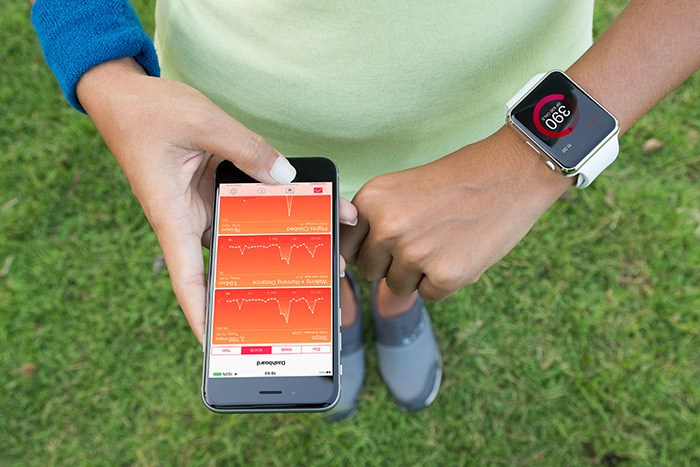 Shutterstock
Shutterstock
A researcher from the University of B.C. says a study looking at iPhone's built-in pedometers is a step toward using the tool as a clinical intervention in improving people's health.
Lead author Mark Duncan says the study comparing users' step count on the iPhone pedometer with an accelerometer worn on their waists found the iPhone was underestimating the number of steps by 21.5 per cent.
While that's not accurate enough to use the devices as a research tool, Duncan says the information is valuable for the average user interested in improving their health.
He says it could also be a tool for physicians to monitor and prescribe more activity to their patients, especially as more Canadians carry smartphones.
The phones fared better in lab tests where accuracy was within five per cent when users walked at a normal pace.
Duncan says the real-world discrepancy is likely due to people forgetting to carry their phones at all times, particularly on short trips to the water cooler or bathroom.
![]()


